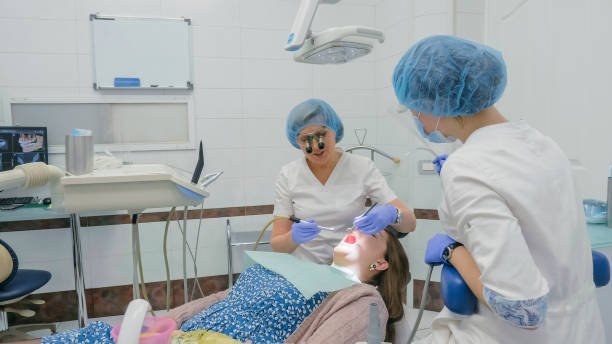Your teeth are more important than you might realize. Getting regular dental checkups and cleanings is crucial for protecting your oral health and your overall health. Many serious medical conditions can be detected early by your dentist St George. Read on to learn why visiting the dentist regularly is so important.
Cavity Prevention
One of the most common reasons to see a dentist is for cleanings and cavity screenings. During a cleaning, your dentist will scrape off any built-up plaque and tartar. Plaque contains bacteria that causes tooth decay. If left untreated, cavities will form. The bacteria in plaque can also cause gum disease.
Catching cavities early allows them to be treated with a simple filling. Waiting too long may require a root canal or crown. In some cases, severely decayed teeth need to be extracted completely. Visiting your dentist twice a year helps detect cavities when they are small so they can be treated before turning into major problems.

Gum Disease Detection
Gum disease is an infection of the tissues surrounding and supporting the teeth. It is caused by a buildup of plaque below the gum line. Warning signs include red, swollen, or bleeding gums. Advanced gum disease causes gums to recede and expose more of the tooth. Eventually, teeth can become loose or even fall out.
During dental cleanings, your dentist will check for early signs of gum disease. Special tools are used to measure gum pockets around each tooth. Catching gum disease early makes treatment easier. Left untreated, gum disease can destroy the bones and other structures supporting the teeth.
Oral Cancer Screening
Oral cancer screening is another important reason to schedule regular dental exams. Oral cancer often forms on the lips, tongue, cheeks, floor of the mouth, sinuses or throat. The earlier it is detected, the better the chances of recovery.
Your dentist will check your head, neck, mouth and throat for lumps, swelling or irregular tissues that may indicate oral cancer. Oral cancer screening is quick and painless. Don’t wait until you notice symptoms before coming in. Early detection saves lives.
Read More: How To Find The Best Foot And Ankle Surgeons in Maryland
Bad Breath Prevention
Bad breath, or halitosis, is most often caused by plaque buildup and poor oral hygiene. Food particles left between teeth provide fuel for odor-causing bacteria. Other causes include gum disease, dry mouth, smoking, and some medications.
Regular dental cleanings control plaque and help freshen breath. Your dentist can also check for other problems contributing to bad breath. Proper brushing and flossing between dental visits helps keep halitosis under control.
Tooth Grinding and TMJ Check
Teeth grinding, also called bruxism, involves clenching or grinding the teeth together. It often happens during sleep but may also occur when awake. Tooth grinding gradually wears down tooth enamel. It also leads to jaw and facial pain.
Your dentist will check for early signs of bruxism during your visit. Smooth, shiny spots indicate areas being ground down. Treatment options include mouth guards and bite splints. Fixing this issue early prevents extensive tooth damage and discomfort.
TMJ (temporomandibular joint) disorders involve pain in the jaw joints and muscles. Symptoms include popping noises when opening or closing the mouth. TMJ issues frequently occur with teeth grinding. Dentists can detect problems early and provide treatment before symptoms worsen.

Impact on Overall Health
What happens in your mouth doesn’t stay there. Gum disease and tooth decay can allow bacteria to enter your bloodstream. This may lead to problems such as:
- Heart disease – Oral bacteria entering the blood can stick to fatty plaques in arteries causing clots.
- Stroke – Inflammation from gum disease may increase clot formation in arteries leading to the brain.
- Diabetes – Gum disease makes diabetes harder to control by increasing resistance to insulin.
- Pregnancy issues – Mothers with gum disease are more likely to deliver preterm, low birth weight babies.
- Respiratory disease – Bacteria from infected gums can be inhaled into the lungs increasing risk of pneumonia.
Routine dental exams allow early treatment of issues in your mouth before they create problems elsewhere in your body. Your dentist and hygienist will also check for signs of health issues like nutritional deficiencies, eating disorders and oral cancer.
Also Read: Why People Get Varicose Vein Treatment
When to Visit the Dentist
The American Dental Association recommends visiting the dentist at least twice each year for exams and professional cleanings. However, your specific needs may require more frequent visits. Be sure to follow your dentist’s recommendations for return visits.
See your dentist right away if you experience any dental pain, swelling or trauma. Report any oral changes or unusual symptoms you notice between regular checkups. Don’t wait until your normally scheduled cleaning to have something looked at.
Protect your oral health and your overall well-being by making regular dentist appointments. Consistent visits allow problems to be detected early and treated more simply and affordably. Don’t cut corners on your dental care.





